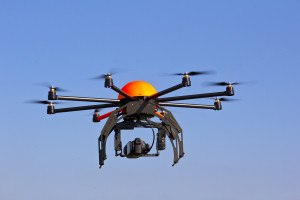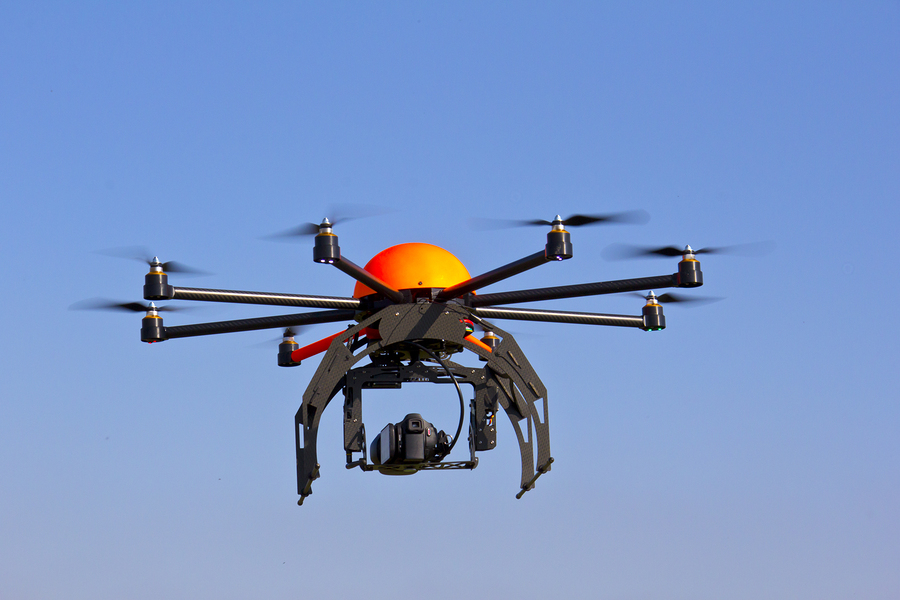Colorado lawmakers are considering regulating the use of drones, citing privacy concerns as they look to join at least 20 other states that have set limits.
A bill pending in the Colorado Senate would require law enforcement to have a warrant before using a drone, formally called an “unmanned aerial vehicle,” unless there is imminent threat to life or risk of a terrorist attack.
The measure would also set new limits for private citizens using drones, such as limiting their use to daylight hours and within the operator’s sight, up to 3 miles.
“The intention is to protect the privacy of people with this new technology that is around us,” said the bill’s sponsor, Sen. Linda Newell, D-Littleton.
“We love new technology … (but) we want to make sure that those who might have ill intent would be held accountable.”
Newell has Republican support for her proposal, with two GOP senators signing on as co-sponsors. The Republicans call the proposal a needed check on government surveillance.
 “Drones are becoming increasingly available at every level, and when it comes to government use, it needs to stay within the 4th Amendment,” which guards against unreasonable search and seizure, said Sen. Kevin Lundberg, R-Berthoud.
“Drones are becoming increasingly available at every level, and when it comes to government use, it needs to stay within the 4th Amendment,” which guards against unreasonable search and seizure, said Sen. Kevin Lundberg, R-Berthoud.
But the drone proposal won’t be an easy sell to all. Law enforcement agencies haven’t said whether they support or oppose the measure, but in closed-door meetings this week, sponsors agreed to make some changes. The measure hasn’t yet been scheduled for a hearing, and there may be a rival drone proposal introduced in the House.
Law enforcement wants to make sure the measure doesn’t go too far and strip them of their ability to use drones to assist in things like accident recovery and disaster response.
For example, Mesa County sheriffs’ officers used drones last spring to assess damage from a May mudslide that killed three people. Drones can be used to watch for wildfires, or to check for victims in mountainous rescue missions where human rescuers may struggle.
Many applications for drone use don’t have anything to do with criminal investigations, said Chris Johnson, head of the County Sheriffs of Colorado.
“I don’t particularly like the term ‘surveillance,’ because that isn’t mainly what they’re used for,” he said.
At least 20 states regulate drones and how law enforcement and the public can use them. Federal regulation is also expected from the Federal Aviation Administration, Johnson said.
Another sponsor of the measure, Democratic Sen. Lucia Guzman of Denver, said it’s time Colorado had some rules on drone use.
“Whether it’s the police or the FBI or my parents checking on me without my knowing it, I want to know my privacy is protected,” she said.
Was this article valuable?
Here are more articles you may enjoy.


 Tesla Sued Over Crash That Trapped, Killed Massachusetts Driver
Tesla Sued Over Crash That Trapped, Killed Massachusetts Driver  Why 2026 Is The Tipping Point for The Evolving Role of AI in Law and Claims
Why 2026 Is The Tipping Point for The Evolving Role of AI in Law and Claims  China Bans Hidden Car Door Handles in World-First Safety Policy
China Bans Hidden Car Door Handles in World-First Safety Policy  Charges Dropped Against ‘Poster Boy’ Contractor Accused of Insurance Fraud
Charges Dropped Against ‘Poster Boy’ Contractor Accused of Insurance Fraud 